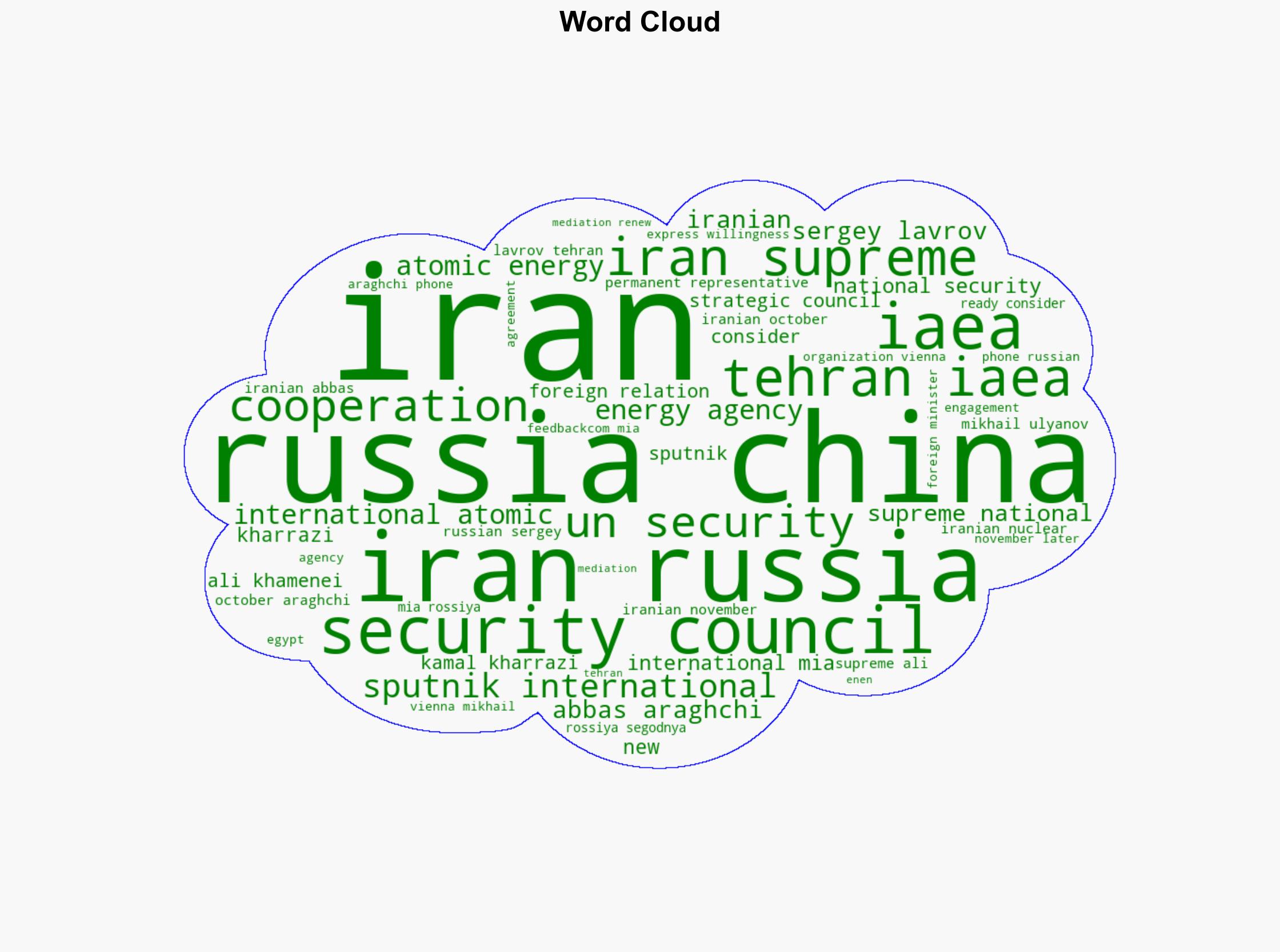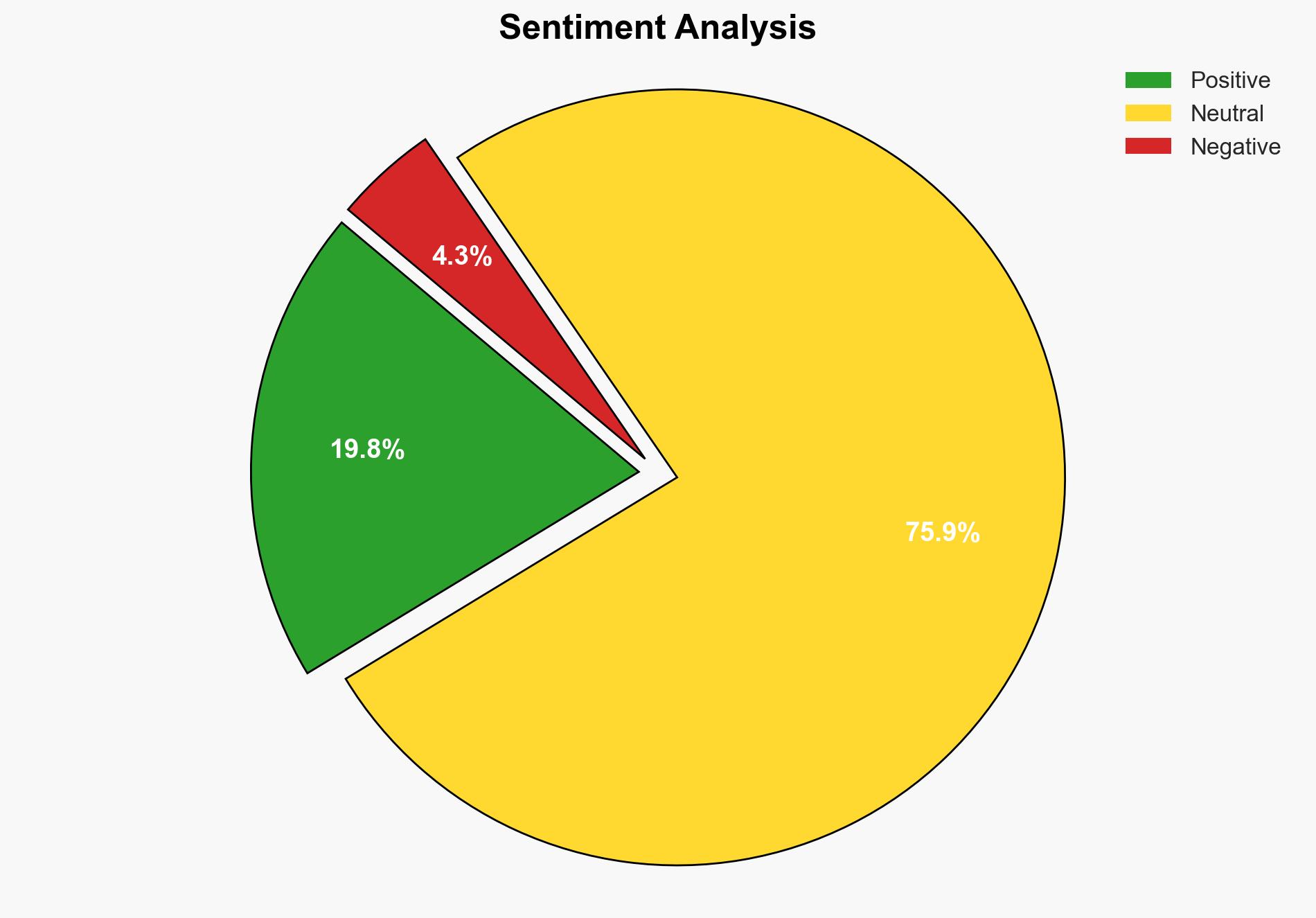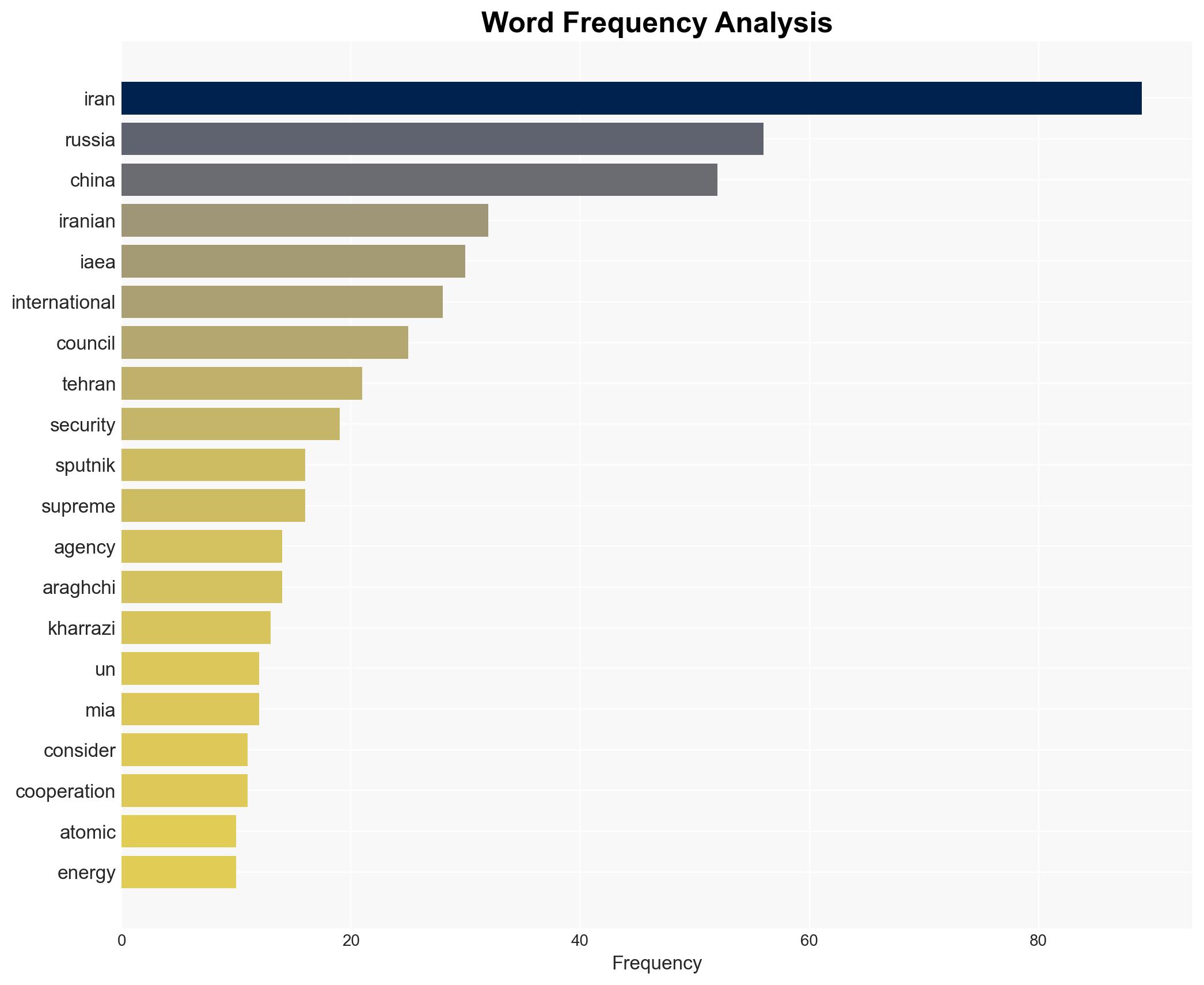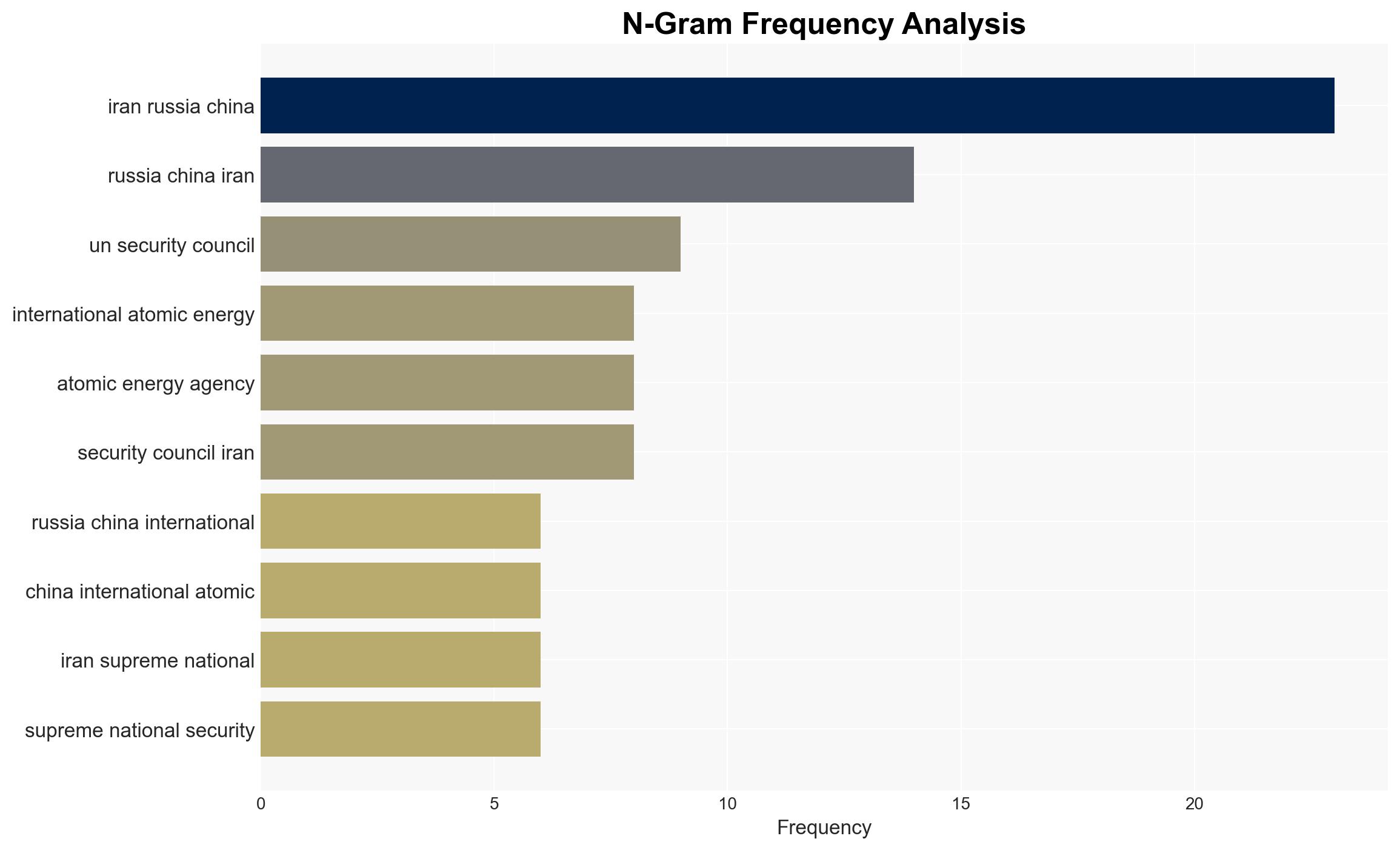Iran Ready to Consider Russia China Mediation in Renewing IAEA Cooperation – Sputnikglobe.com
Published on: 2025-11-18
AI-powered OSINT brief from verified open sources. Automated NLP signal extraction with human verification. See our Methodology and Why WorldWideWatchers.
Intelligence Report:
1. BLUF (Bottom Line Up Front)
Iran’s expressed willingness to consider Russian and Chinese mediation in renewing cooperation with the International Atomic Energy Agency (IAEA) suggests a strategic maneuver to mitigate international pressure and sanctions. The most supported hypothesis is that Iran seeks to leverage its relationships with Russia and China to gain a more favorable negotiation position with the IAEA and the international community. Confidence Level: Moderate.
2. Competing Hypotheses
Hypothesis 1: Iran genuinely seeks to renew cooperation with the IAEA through Russian and Chinese mediation to alleviate sanctions and international isolation.
Hypothesis 2: Iran’s expression of willingness is a strategic delay tactic to buy time while continuing its nuclear program development.
The first hypothesis is more likely given Iran’s recent diplomatic engagements with Russia and China, suggesting a coordinated effort to re-enter negotiations. However, the second hypothesis cannot be dismissed due to Iran’s historical pattern of using negotiations to delay international scrutiny.
3. Key Assumptions and Red Flags
Assumptions: Iran’s leadership is unified in its approach to international negotiations; Russia and China are willing to act as neutral mediators.
Red Flags: Iran’s past behavior of using negotiations to stall; lack of concrete commitments from Russia and China; potential for Iran to use mediation as a cover for continued nuclear development.
4. Implications and Strategic Risks
The potential renewal of IAEA cooperation through mediation could reduce regional tensions and open pathways for diplomatic resolutions. However, failure to achieve genuine cooperation may lead to increased sanctions and further isolation of Iran, escalating regional instability. Cyber and informational threats could arise if negotiations are perceived as insincere, potentially leading to retaliatory actions from other nations.
5. Recommendations and Outlook
- Encourage transparent and verifiable steps from Iran to demonstrate genuine intent in renewing IAEA cooperation.
- Engage with Russia and China to ensure their mediation efforts align with international non-proliferation goals.
- Best-case scenario: Successful mediation leads to renewed IAEA cooperation and reduced sanctions.
- Worst-case scenario: Mediation fails, leading to increased tensions and potential conflict.
- Most-likely scenario: Prolonged negotiations with incremental progress, maintaining the status quo.
6. Key Individuals and Entities
Kamal Kharrazi, Ali Khamenei, Abbas Araghchi, Sergey Lavrov, Mikhail Ulyanov.
7. Thematic Tags
Structured Analytic Techniques Applied
- Cognitive Bias Stress Test: Expose and correct potential biases in assessments through red-teaming and structured challenge.
- Bayesian Scenario Modeling: Use probabilistic forecasting for conflict trajectories or escalation likelihood.
- Network Influence Mapping: Map relationships between state and non-state actors for impact estimation.
Explore more:
National Security Threats Briefs ·
Daily Summary ·
Support us





